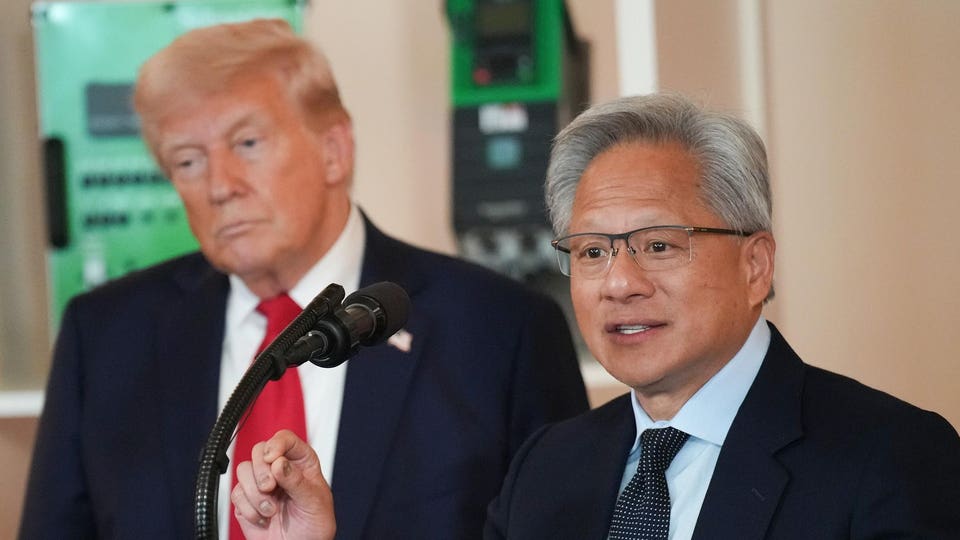BREAKING: President Donald Trump just announced significant restrictions on Nvidia’s sales of advanced AI chips to China. During a 60 Minutes interview aired on CBS on Sunday night, Trump confirmed he will not allow the sale of Nvidia’s flagship Blackwell chips to Beijing, despite permitting other deals between the American chipmaker and China.
In a critical moment for international tech relations, Trump stated, “No, we won’t do that,” when asked if he would allow Nvidia to sell its most advanced semiconductors to China. This statement comes just days after discussions between Trump and Chinese President Xi Jinping hinted at possible export controls on these cutting-edge technologies.
Nvidia’s stock reacted positively to the announcement, rising 1.4% in premarket trading to $205.31. The company recently became the first to surpass a $5 trillion market cap, highlighting its pivotal role in the global semiconductor landscape.
Trump praised Nvidia as the “prime company in the world for that,” emphasizing that the most advanced chips “we will not let anybody have them other than the United States.” This statement underscores the U.S. commitment to maintaining a lead in AI technology, particularly as competition with China intensifies.
Earlier this month, at the Asia-Pacific Economic Cooperation (APEC) summit in South Korea, Trump and Xi discussed various topics, including semiconductors. Following their meeting, Trump mentioned that discussions would continue between Nvidia and China, positioning the U.S. as a “sort of the arbitrator or the referee.”
Nvidia CEO Jensen Huang expressed hope during the APEC summit for future sales of Blackwell chips to China, stating, “I think it’s really good for America and it’s really good for China that Nvidia could participate in the Chinese market.” However, he acknowledged that any final decision rests with Trump.
The urgency of this situation reflects broader concerns about the AI race. When questioned about export restrictions and their implications for the U.S.-China tech rivalry, Trump remarked, “Well, they wouldn’t win it necessarily, but they would certainly have an equal advantage.”
Nvidia’s Huang highlighted the complexities involved, saying, “The president has licensed us to ship to China, but China has blocked us from being able to ship to China.” This ongoing tug-of-war over technology access illustrates the high stakes involved for both nations.
As the situation evolves, it remains crucial to monitor how these trade restrictions will shape the future of the semiconductor industry and the U.S.-China relationship. With Trump’s clear stance against allowing the sale of advanced chips, the implications for Nvidia and the broader market could be profound.
Stay tuned for further updates as this developing story unfolds. The tech world watches closely as the dynamics between the U.S. and China continue to shift in this high-stakes arena.
